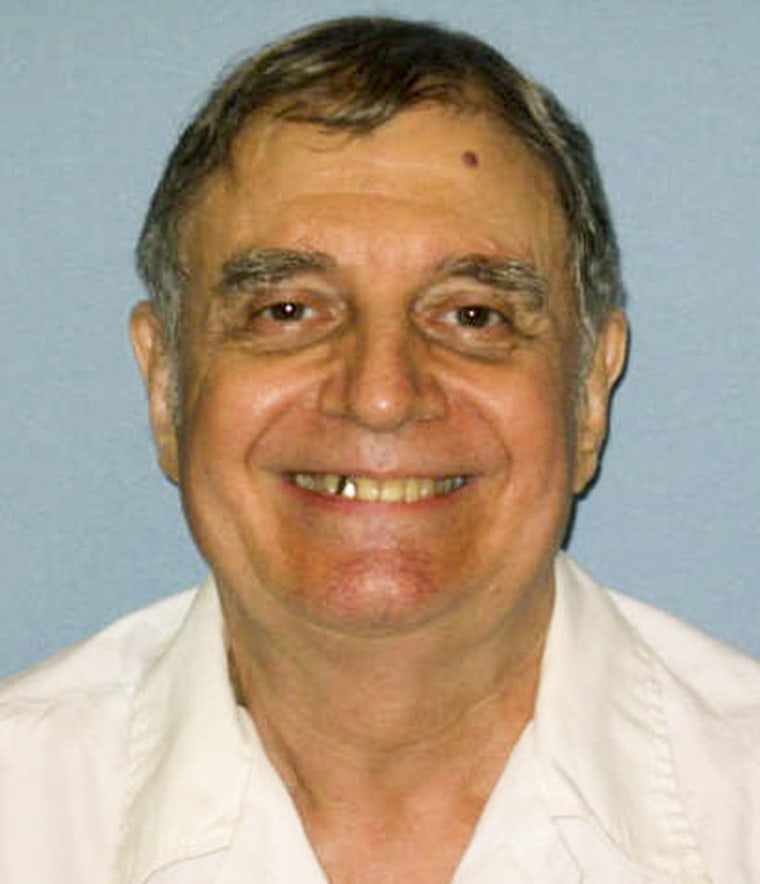Tommy Arthur, a convicted hitman nicknamed “Houdini” by a victims’ group because he escaped execution seven times, was put to death early Friday morning in Alabama after the U.S. Supreme Court declined to give him an eighth reprieve.
Arthur, 75, was pronounced dead at 12:15 a.m. from a lethal injection at Holman Correctional Facility. Media witnesses reported that he mouthed "I love you" to his daughter and gave her a thumb's up.
The execution capped 11th hour legal drama that is common in capital cases.

Just 30 minutes before the scheduled injection, the U.S. Supreme Court issued temporary stay of execution in response to last-minute appeals. The justices later lifted the stay, just an hour before the death warrant was set to expire, allowing the state to go ahead with the execution.
Justice Sonia Sotomayor dissented, saying that Alabama’s use of the sedative midazolam as the first drug in the execution cocktail may be unconstitutional because there’s evidence it does not protect inmates from the pain of the other chemicals. She also criticized the state for blocking Arthur’s attorney from bringing a cellphone to the execution to call the courts if the procedure went awry.
“When Thomas Arthur enters the execution chamber tonight, he will leave his constitutional rights at the door,” Sotomayor wrote.
Last week, Arthur told NBC News that he believed he attorneys would figure out a way to keep him alive.
"Until I take my last breath I'll have hope," he said in a phone interview from death row. "I don't know how to quit. I don't know how to give up."
Arthur was sentenced to death for the 1982 contract killing of Troy Wicker.
Prosecutors say that Arthur, who was serving life at the time for fatally shooting his sister-in-law, had an affair with Wicker's wife, Judy, while in a work-release program and that she paid him $10,000 to kill her husband.
The defense contends that Judy Wicker fingered Arthur as the killer, after initially denying he was involved, so she would be paroled from a life sentence for arranging the hit. Arthur insisted that new DNA testing of a wig worn by a killer will clear him, but the state said no significant genetic material was found and Gov. Kay Ivey rejected his request for retesting.
Arthur did not make an application for clemency, saying it would be tantamount to an admission of guilt.
“Honest to goodness," he said. "I did not commit this crime.”
His daughter, Sherrie Stone, said that while she hoped the execution would bring closure to the Wicker family, she will have none.
"I have never known for certain whether my father killed Troy Wicker - at times I was convinced he was the killer, and at other times I believed he was innocent. Now I will never know the truth because the evidence that could prove if my father was innocent or guilty has not been tested for DNA using the latest technology," she said in a statement released by her father's legal team.
"Governor Ivey denied my father's request for DNA testing and I do not understand why, when the stakes were so high."
